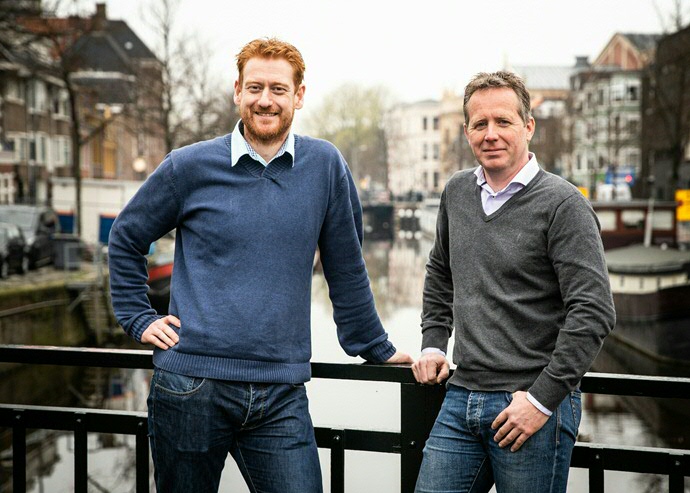BioMACS aims to revolutionise the land of prosthetics

BioMACS can do in three days what now takes three years: testing how different human cells react to the materials of prostheses. This invention can have far-reaching consequences. Fewer infections, fewer rejection symptoms, less problematic scar tissue. In short: better cooperation between prosthesis and body.
As a researcher at the UMCG, Patrick van Rijn has been concerned with this for years, together with the students and PhD students he supervises. It is in fact painstaking work, which says a lot about the chemist's drive. “I’m interested in the interaction between the body and prosthetic material. How is it possible that one material is rejected by the body, while the other is well-received?” “I know that every material and every type of cell affects the success rate. One cell, for example, likes a prosthesis with a soft surface, while another wants something rough and hard. But there wasn't a good way to test many different combinations. And that's what I needed for my research. So, I started developing this technology first. You could call me the creator of my own tools.”
Preventing reoperations
Simply put, Van Rijn devised a system in which a single piece of silicone rubber would be treated with all sorts of different properties for the cells, reminiscent of rain under a sloping roof. And so, he was able to do 10,000 experiments in one go. “In an average laboratory, such an amount would take about three years.” It goes without saying that the prosthetics industry is following the research with interest. A manufacturer of artificial lenses, for example, sees an opportunity to prevent reoperations. Van Rijn: “Patients who are given an artificial lens because of cataracts, have to go back to the doctor after a while. These lenses become cloudy due to a reaction with the body. This alone costs an estimated 10 million euros per year in the Netherlands.”
It’s about helping patients
And then there are breast prostheses, catheters, joint prostheses, stents, tubes; in fact, all the materials that are placed in the human body. A large proportion of these are barely accepted by the body. As a result, more treatments are needed to rectify the situation. BioMACS (the name stands for Biomaterial Advanced Cell Screening) can make a serious difference. Van Rijn: “My motivation is that through science, patients can be helped with this. It's that simple.” This won't work if the research stays in the lab. The invention, which is patented, must therefore find its way to market. For that reason, Patrick van Rijn decided to team up with Menno de Jong and Richard Hamstra. De Jong is now CEO of the startup, while Hamstra deals with finance and business contacts.
Glorious future
Menno de Jong, who helped more startups on their way up, didn't need long to think about it. “We’ve done good market research and it’s simple: there is a demand for this. Prosthetics manufacturers want to offer quality. In the future, thanks to us, they may be able to make personalised prostheses. That's really a kind of dream for us, too. That we can give each body appropriate advice for the type of prosthesis.” The first trial customer has already arrived. In the meantime, Van Rijn is working enthusiastically on optimising his test. “That's a little in my nature. If I get stuck into something, I won't stop until it's perfect.” The future looks bright, knows Menno de Jong. “We want to be fully developed in about two years and storm the market. Now we’re still using the facilities of the UMCG, but soon I can imagine that we’ll have our own laboratory, where a lot of people are busy with research. We’ll keep the technology to ourselves. We can carry out tests for the industry very quickly and provide appropriate advice. And in doing so give the patient a better quality of life.”
Text: Northern Knowlegde, Photo: Pepijn van den Broeke
More news
-
15 September 2025
Successful visit to the UG by Rector of Institut Teknologi Bandung
